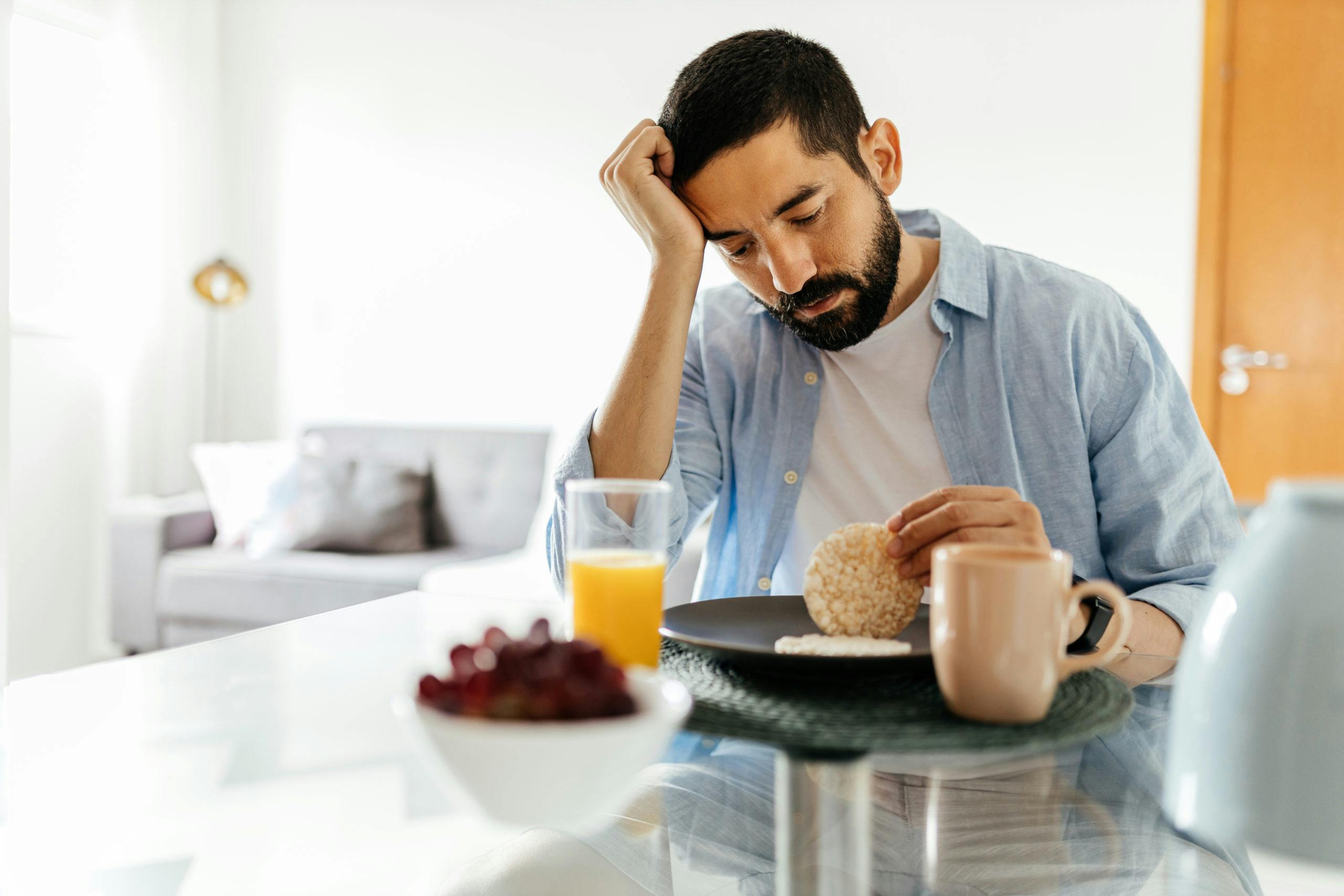Emotional eating. I feel, therefore I eat.
Tell me if this sounds familiar: You have a bad day at work and you reach for the chocolate in the grocery store aisle or the extra dessert at your friend’s dinner party, or working from home during the pandemic resulted in weeks of over indulging on banana bread?
Pandemic or not, it’s fair to say that all of us at some point or another have turned to food when we’re sad, stressed, or lonely in efforts to comfort, soothe or distract ourselves from uncomfortable feelings.
And it’s not just during difficult times, but also when we felt like we needed to celebrate something or reward ourselves for a job well done that we reach for the high carb, high calorie foods.
This is referred to as emotional eating and if we fall into this pattern of emotional eating over time, it can become harder and harder for us to recognise or interpret if we are physically hungry or if the “hunger” or need is emotional (i.e. comfort or self-soothing).
What is emotional eating? When we experience intense emotions, particularly difficult emotions such as anxiety, sadness, loneliness or boredom, it’s natural to want to ease these. Food – readily available and highly palatable – is a quick, and in the short-term, effective way to self-soothe and eating serves to reduce negative emotion.
Is emotional eating only due to difficult emotions? While the link between difficult emotion and emotional eating is well recognised, more recently researchers have explored the link between positive emotions and emotional eating. It has been suggested that emotional eating linked to positive eating is an attempt to extend and enhance the positive mood. But we can also build up habits and eating can be associated with reward. So, for example, when we tell ourselves we ‘deserve’ or have ‘earnt’ a favoured food, the favoured food becomes associated as a “treat’.
Common signs you might be emotionally eating
- Eating when you are not hungry or when you are full. Food can be the center point of many social events, it can teleport us into our childhood of carefree days and no stress, or it can soothe and comfort us as a constant comforting companion. If we use food for any other reason than nourishment, we are engaging in emotional eating.
- Eating to calm or soothe yourself down when you feel sad or stressed. After a bad day at work or a fight with a friend, you reach out for the high carb food options as a way of coping with the stressful event.
- Eating to block out or distract yourself from difficult feelings such as loneliness, boredom, sadness, or anxiety. This is using food not as nourishment but as distraction from the difficult feelings you might be experiencing.
- Eating certain foods as ‘rewards’ that you have to ‘earn.’ Using food as a reward or as a punishment undermines reading the inner cues of the body and thus, leads to unhealthy eating.
- Changing your eating habits when you have more stress in your life. The biological reason you overeat when stressed may be that persistent stress causes increased and ongoing secretion of a hormone called cortisol into the bloodstream, and high blood levels of cortisol are linked to increased appetite. Unless alternative ways of stress are cultivated this can become an unhealthy means of dealing with stress.

How to address emotional eating?
- Engage in mindful eating: This can mean you check-in with yourself to see if you are hungry, considering what you are cooking or preparing, not eating on the go or while standing up, being engaged and present with your food when you are eating, considering the textures and appearance of your food, and thanking the food for nourishing your body.
- Remove judgment from food: There are no good foods or bad foods. This reduces the risk that we see certain, highly desirable foods as items we can only have if we earn them. This makes it more likely that when we permit ourselves these foods, we will overindulge.
- Learn healthy emotional regulation: what strategies could you practice instead of eating? Consider other things that soothe you, for example, engaging your other senses. Go for a walk and notice nature – sounds, smells and sights. In the short-term, these strategies won’t work as quickly as eating and you will need to practice them. However, over time, developing alternative means of coping with negative emotions will improve both your physical and mental health.
- Speak to a psychologist: Emotional eating is not simply a matter of a person lacking self-discipline or needing to eat less. Learning the underlying causes of your emotional eating will help you build healthier practices.
- Remove temptation: Many times emotional eating has become a habit and we engage in it unconsciously and without consideration. If you know you have a go-to food that serves as your companion, do not bring it to your home and make it harder to access when you are experiencing difficult emotions. This way you will become increasingly aware of when you tend to emotionally eat.
Authored by Dr. Victoria Mountford, D.Clin.Psy (UK), Clinical Psychologist & Joint Lead, Eating Disorder Service – The Lighthouse Arabia – Center for Wellbeing
